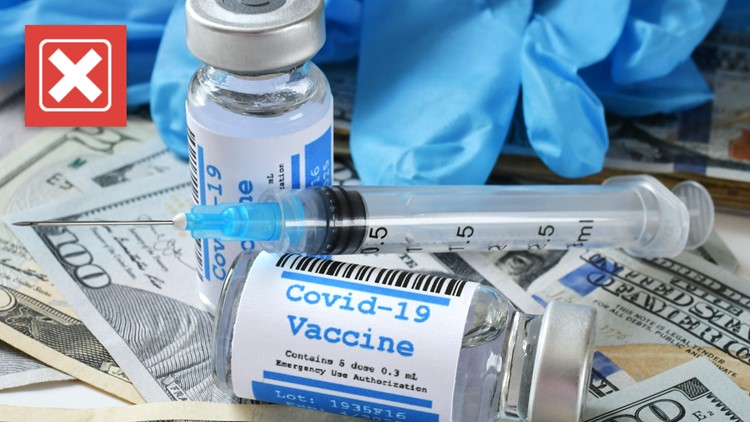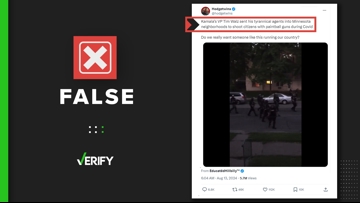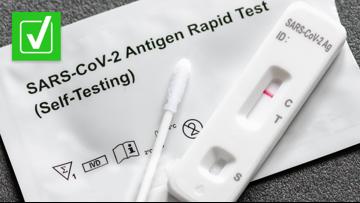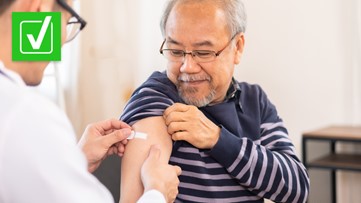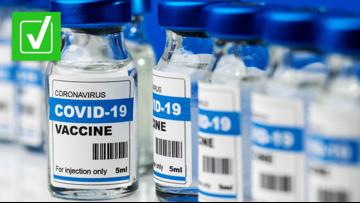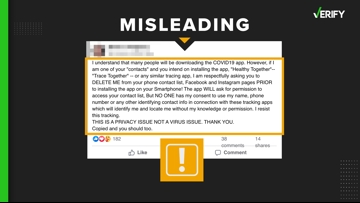As the highly transmissible delta variant of COVID-19 spreads rapidly across the United States, the Biden administration, public health agencies and lawmakers are doing all that they can to encourage people to get vaccinated.
According to the Centers for Disease Control and Prevention (CDC), the vaccines are effective in preventing serious illness or death against COVID-19 and its variants. Now, VERIFY viewer Ashley wants to know if the government is paying citizens to get vaccinated.
THE QUESTION
Is the federal government paying people to get vaccinated?
THE SOURCES
THE ANSWER
No, the federal government is not paying people to get vaccinated. However, it is providing the COVID-19 vaccines free of charge to all U.S. residents and providing funding to states to use for their own vaccine incentive programs.
WHAT WE FOUND
On May 10, 2021, the U.S. Department of Treasury, announced the launch of “Coronavirus State and Local Fiscal Recovery Funds,” which was established by the American Rescue Plan Act of 2021, to provide $350 billion in emergency funding to eligible state, local, territorial and tribal governments in an effort “to help bring back jobs, address the COVID-19 pandemic’s economic fallout and lay the foundation for a strong, equitable recovery.”
According to the Department of Treasury, recipients of this emergency funding could use the money to pay for vaccine incentive programs, like cash or in-kind transfers, lottery programs or other incentives for individuals who get vaccinated.
“Under the Interim Final Rule, recipients may use Coronavirus State and Local Fiscal Recovery Funds to respond to the COVID-19 public health emergency, including expenses related to COVID-19 vaccination programs,” said the Department of Treasury. “Programs that provide incentives reasonably expected to increase the number of people who choose to get vaccinated, or that motivate people to get vaccinated sooner than they otherwise would have, are an allowable use of funds so long as such costs are reasonably proportional to the expected public health benefit.”
By the end of May, states like Maryland, New York, Ohio and Oregon had announced vaccine lotteries in hopes of increasing vaccinations in the states.
In June, President Joe Biden announced the “National Month of Action,” which was a community-based effort to get at least 70% of American adults at least partially vaccinated against COVID-19 by July 4.
At that time, several companies partnered with the Biden administration and offered incentives to encourage people to get their COVID-19 shots. Other states, like West Virginia, Connecticut and New Jersey also began offering a variety of incentives to their residents.
The Centers for Medicare & Medicaid Services also announced on June 9 an additional payment amount for administering in-home COVID-19 vaccinations to Medicare beneficiaries who may have had difficulty leaving their homes or were otherwise hard to reach as a part of the Biden administration’s commitment to increasing access to vaccinations.
On Aug. 2, the U.S. officially hit Biden’s 70% vaccination goal, but that isn’t stopping the administration from continuing to work with states and local leaders to encourage more people to get vaccinated. During a recent speech at the White House, the president called on all states and local governments to use the funding they received to give $100 to anyone who gets fully vaccinated.
“I know that paying people to get vaccinated might sound unfair to folks who’ve gotten vaccinated already, but here’s the deal: If incentives help us beat this virus, I believe we should use them. We all benefit if we can get more people vaccinated,” said Biden.
The National Governors Association features a list of state COVID-19 vaccine incentives that have been developed to increase vaccination rates across the country on its website.

